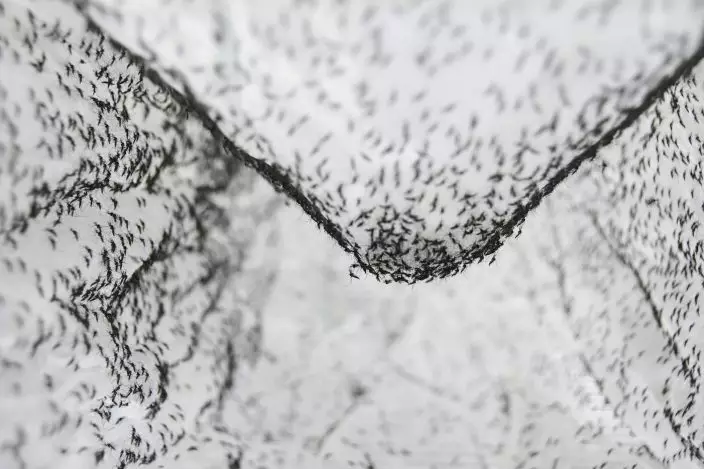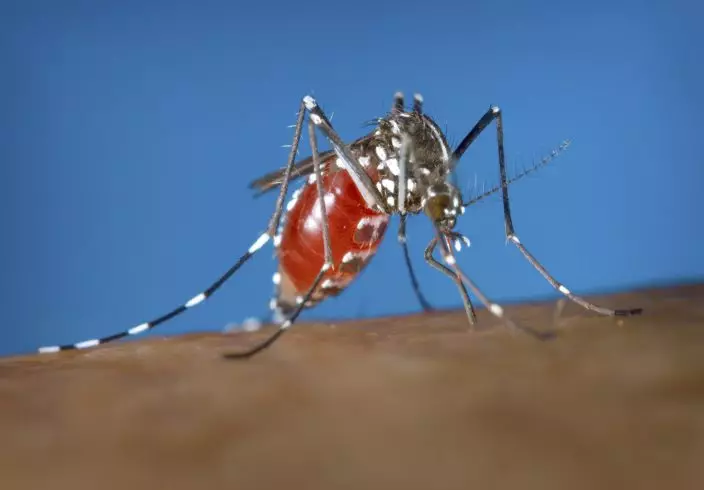Scientists say they nearly eliminated disease-carrying mosquitoes on two islands in China using a new technique.
But it's not clear whether this will be practical for larger areas or how expensive it'll be.
In the experiment, researchers targeted Asian tiger mosquitoes, invasive white-striped bugs that can spread dengue fever, Zika and other diseases. They used a novel technique that combined exposing the insects to radiation and infecting them with a bacterium.

This July 13, 2019 photo provided by Guangzhou Wolbaki Biotech shows male Aedes albopictus mosquitoes in a container at the company's lab in Guangzhou, China, prepared for release. Researchers zapped the insects with a small dose of radiation and infected them with a virus-fighting bacterium called Wolbachia. Males and female mosquitoes with different types of Wolbachia won’t have young that survive. So researchers intentionally infect males with a strain not found in the area and then release the insects. (Guangzhou Wolbaki Biotech via AP)
For 18 weeks in 2016 and 2017, they released male mosquitoes onto two small islands near Guangzhou, China, a region plagued by dengue fever. The number of female mosquitoes that are responsible for disease spread plummeted by 83% to 94% each year, similar to other methods like spraying insecticides and using genetically modified mosquitoes.
Findings appear Wednesday in Nature.

This July 13, 2019 photo provided by Guangzhou Wolbaki Biotech shows containers where adult Aedes albopictus mosquitoes are being raised at the company's lab in Guangzhou, China. Researchers zapped the insects with a small dose of radiation and infected them with a virus-fighting bacterium called Wolbachia. Males and female mosquitoes with different types of Wolbachia won’t have young that survive. So researchers intentionally infect males with a strain not found in the area and then release the insects. (Guangzhou Wolbaki Biotech via AP)

This July 13, 2019 photo provided by Guangzhou Wolbaki Biotech shows containers where Aedes albopictus mosquito larvae are being raised at the company's lab in Guangzhou, China. Researchers zapped the insects with a small dose of radiation and infected them with a virus-fighting bacterium called Wolbachia. Males and female mosquitoes with different types of Wolbachia won’t have young that survive. So researchers intentionally infect males with a strain not found in the area and then release the insects. (Guangzhou Wolbaki Biotech via AP)

FILE - This 2003 photo provided by the Centers for Disease Control and Prevention shows a female Aedes albopictus mosquito acquiring a blood meal from a human host. (James GathanyCenters for Disease Control and Prevention via AP)


